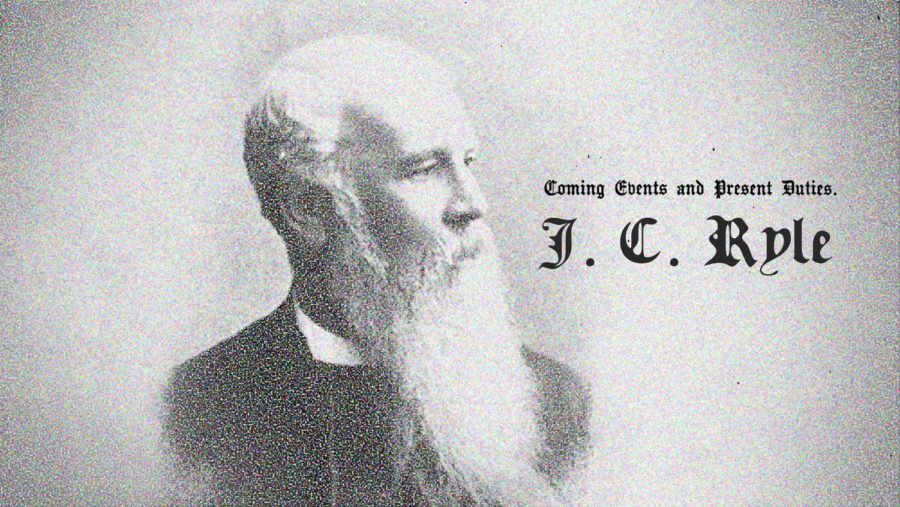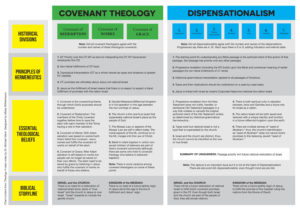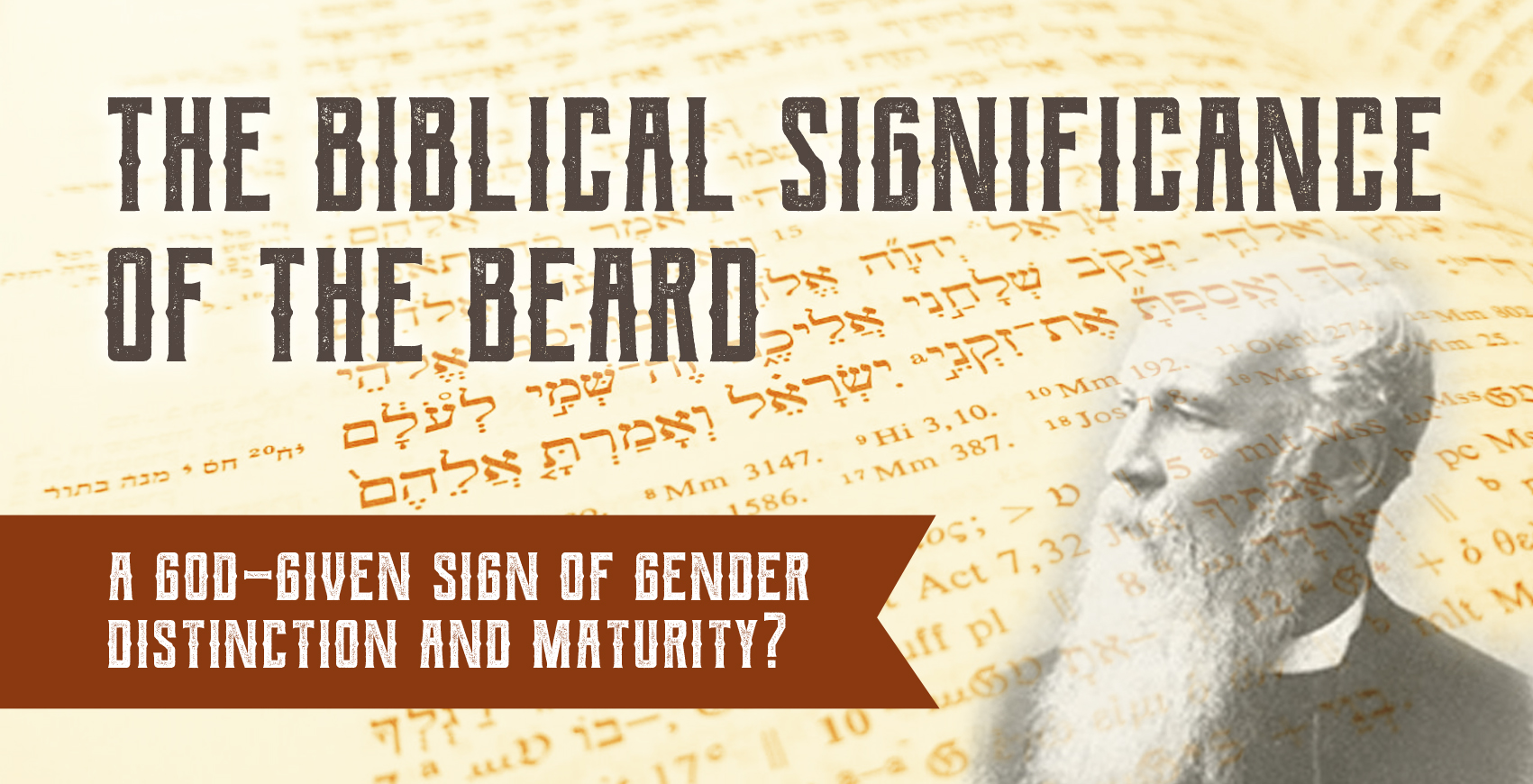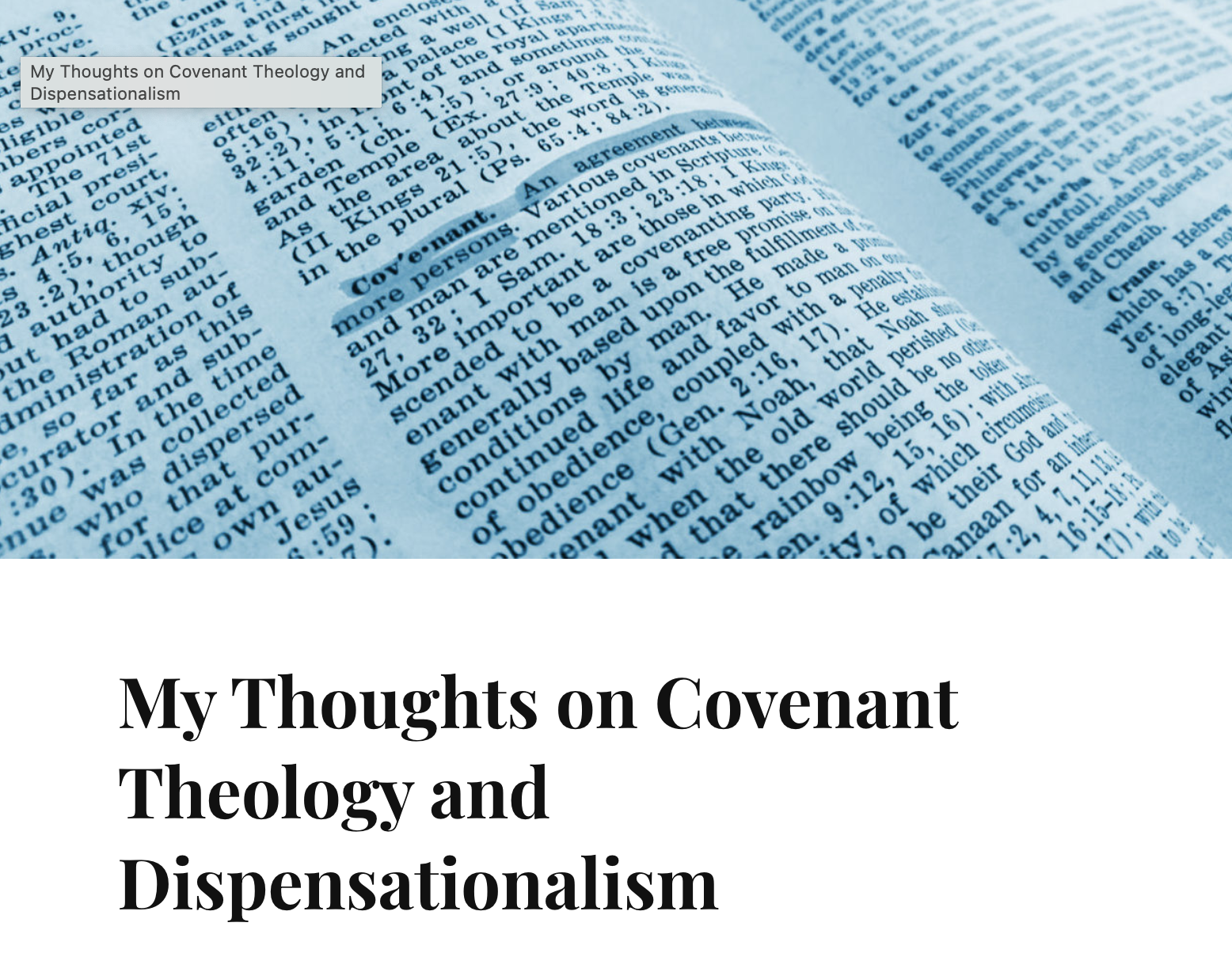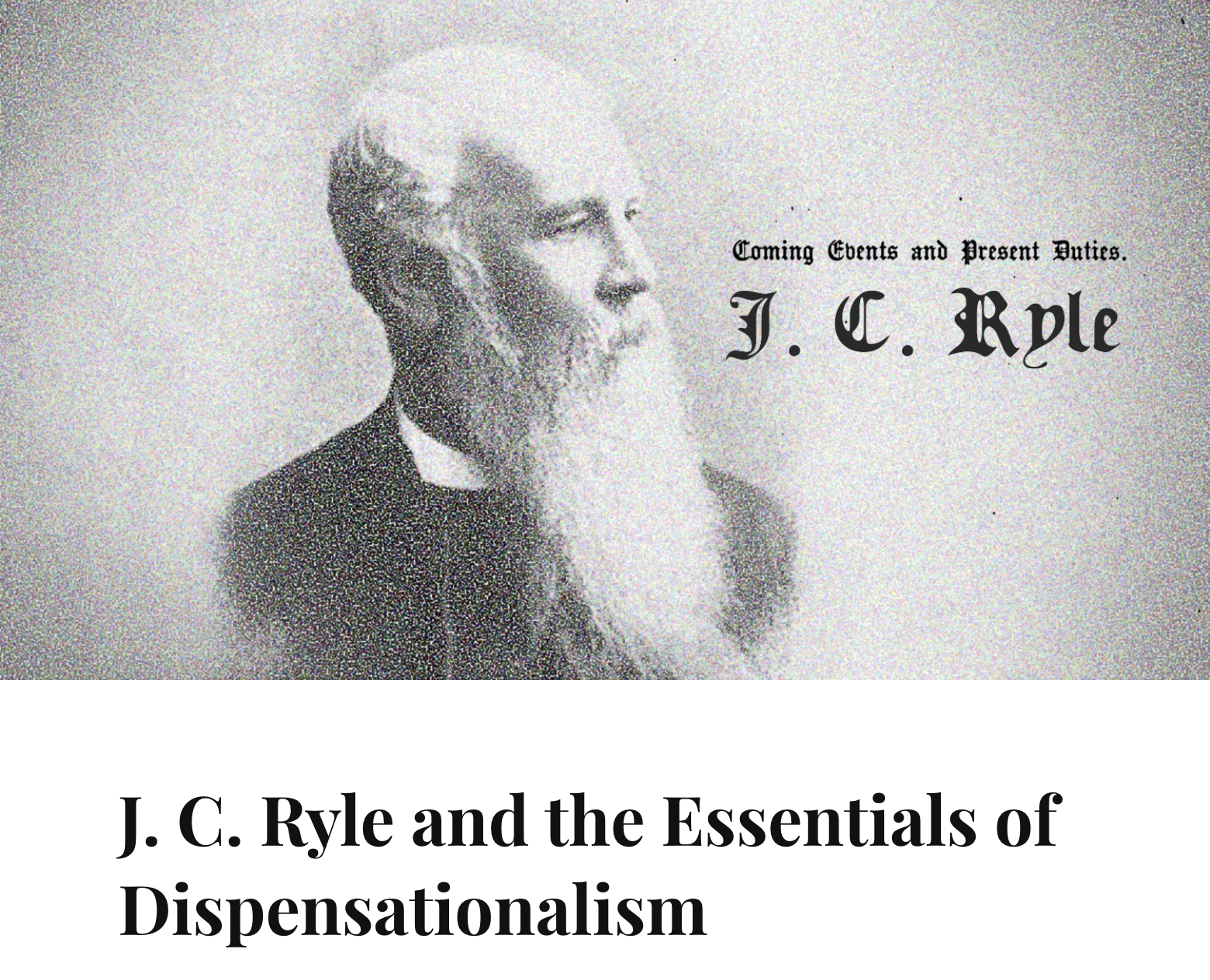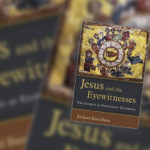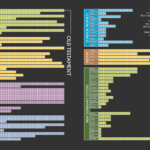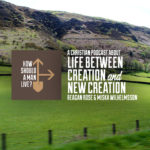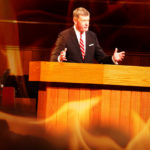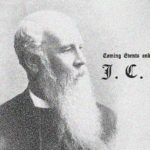Introduction
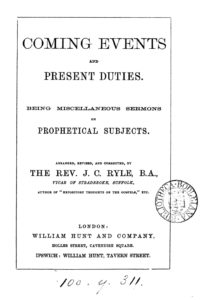 In in the last few decades, there has been a resurgence of interest in the writings of Bishop J.C. Ryle. Particularly his book, Holiness is widely known and beloved by many Christians, and rightly so. Much of this renewed interest has been greatly advanced by Banner of Truth, the main publishing house that has made Ryle’s writings available to a new generation of believers. In fact, almost all the major works by Ryle have indeed been republished by Banner of Truth[1], except for one book, Coming Events and Present Duties: Being Plain Papers on Prophecy which is the only one dealing specifically with his views regarding eschatology. Ryle himself described this book as a compact manual on his views regarding future prophecy.[2] Thankfully this book has been republished by other smaller publishers, but since Banner of Truth is much more widely known, and regarded as the authority on all things Ryle, the book has remained largely in the shadows to the present generation. One cannot state for certain, but it seems very likely that the reason for Banner of Truth not republishing this book by Ryle, is due to the non-premillennial (amillennial and postmillennial) views represented by the publishing house, and since Ryle’s book presents a clear case for premillennialism, it is understandable that the publisher would not be too eager in promoting this. Whatever the reason is for Banner of Truth, it needs to be recognized that this decision of not publishing this eschatological work by Ryle, while yet publishing all his other works, has contributed to the ignorance that exists among Christians, especially in theologically Reformed circles, regarding the somewhat controversial eschatological views of J. C. Ryle. It is also ironic, that already during his own lifetime, Ryle himself noted when republishing this book in 1879 after its initial printing 12 years prior (1867), that some of the chapters which he held to have real worth, had yet received little notice.[3] More importantly, Ryle stated that in his view one of the greatest shortcomings of the modern church was that pastors did not preach enough about the second coming of Christ and his future kingdom.[4] He strongly challenged the readers of his day, that modern Christians have become most unlike the early Christians, in the regard that they tend to completely ignore the doctrine of Christ’s second coming, making it a peripheral issue, whereas the early church placed it as an issue of first importance.[5] Therefore, it is very unfortunate that the book, which Ryle wrote specifically in regard to this woefully neglected doctrine, continues to be largely unknown and neglected even to this present day. When speaking about Ryle, even in the biographies about him, very rarely is there any mention regarding the importance he placed on rightly understanding the second coming of Christ and the nature of his kingdom.
In in the last few decades, there has been a resurgence of interest in the writings of Bishop J.C. Ryle. Particularly his book, Holiness is widely known and beloved by many Christians, and rightly so. Much of this renewed interest has been greatly advanced by Banner of Truth, the main publishing house that has made Ryle’s writings available to a new generation of believers. In fact, almost all the major works by Ryle have indeed been republished by Banner of Truth[1], except for one book, Coming Events and Present Duties: Being Plain Papers on Prophecy which is the only one dealing specifically with his views regarding eschatology. Ryle himself described this book as a compact manual on his views regarding future prophecy.[2] Thankfully this book has been republished by other smaller publishers, but since Banner of Truth is much more widely known, and regarded as the authority on all things Ryle, the book has remained largely in the shadows to the present generation. One cannot state for certain, but it seems very likely that the reason for Banner of Truth not republishing this book by Ryle, is due to the non-premillennial (amillennial and postmillennial) views represented by the publishing house, and since Ryle’s book presents a clear case for premillennialism, it is understandable that the publisher would not be too eager in promoting this. Whatever the reason is for Banner of Truth, it needs to be recognized that this decision of not publishing this eschatological work by Ryle, while yet publishing all his other works, has contributed to the ignorance that exists among Christians, especially in theologically Reformed circles, regarding the somewhat controversial eschatological views of J. C. Ryle. It is also ironic, that already during his own lifetime, Ryle himself noted when republishing this book in 1879 after its initial printing 12 years prior (1867), that some of the chapters which he held to have real worth, had yet received little notice.[3] More importantly, Ryle stated that in his view one of the greatest shortcomings of the modern church was that pastors did not preach enough about the second coming of Christ and his future kingdom.[4] He strongly challenged the readers of his day, that modern Christians have become most unlike the early Christians, in the regard that they tend to completely ignore the doctrine of Christ’s second coming, making it a peripheral issue, whereas the early church placed it as an issue of first importance.[5] Therefore, it is very unfortunate that the book, which Ryle wrote specifically in regard to this woefully neglected doctrine, continues to be largely unknown and neglected even to this present day. When speaking about Ryle, even in the biographies about him, very rarely is there any mention regarding the importance he placed on rightly understanding the second coming of Christ and the nature of his kingdom.
The purpose of this article is to identify the essentials of Ryle’s eschatology, and then compare those to the essentials of modern dispensationalism, in order to see if Ryle could indeed be described as dispensational in his views relating to prophetic truth.

